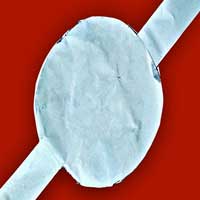 Researchers have created a novel plant-based energy storage device that in the near future could charge devices - even electric cars - within a few minutes. Furthermore, they say their devices are flexible, lightweight and cost-effective.
Researchers have created a novel plant-based energy storage device that in the near future could charge devices - even electric cars - within a few minutes. Furthermore, they say their devices are flexible, lightweight and cost-effective.
Wednesday, September 9, 2020
Plant-based supercapacitor could charge electric cars in a few minutes
 Researchers have created a novel plant-based energy storage device that in the near future could charge devices - even electric cars - within a few minutes. Furthermore, they say their devices are flexible, lightweight and cost-effective.
Researchers have created a novel plant-based energy storage device that in the near future could charge devices - even electric cars - within a few minutes. Furthermore, they say their devices are flexible, lightweight and cost-effective.
Superconductors are super resilient to magnetic fields
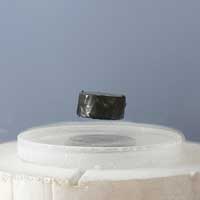 Scientists propose a new mechanism to explain the resilience of superconductors after temporary exposure to a magnetic field, providing a potential route to lossless electricity transmission.
Scientists propose a new mechanism to explain the resilience of superconductors after temporary exposure to a magnetic field, providing a potential route to lossless electricity transmission.
Velcro-like food sensor detects spoilage and contamination
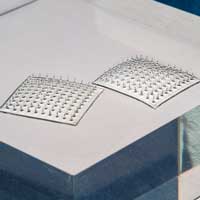 Color-changing array of silk microneedles could help stem outbreaks and avoid food waste.
Color-changing array of silk microneedles could help stem outbreaks and avoid food waste.
Quantum shake
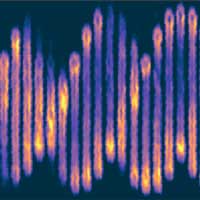 Physicists use classical concepts to decipher strange quantum behaviors in an ultracold gas.
Physicists use classical concepts to decipher strange quantum behaviors in an ultracold gas.
Chemists develop a new type of one-molecule thick water-repellent film
 Scientists have created a new type of two-dimensional nanofilm from an organic material called calixarene. The invention can be used as a protective coating in electronics and as a part of molecular filters.
Scientists have created a new type of two-dimensional nanofilm from an organic material called calixarene. The invention can be used as a protective coating in electronics and as a part of molecular filters.
Sampling the gut microbiome with an ingestible pill
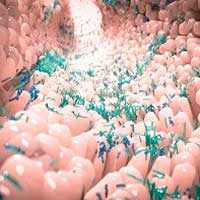 Researchers have developed an ingestible capsule that in rat studies captured bacteria and other biological samples while passing through the gastrointestinal tract.
Researchers have developed an ingestible capsule that in rat studies captured bacteria and other biological samples while passing through the gastrointestinal tract.
Sampling the gut microbiome with an ingestible pill
 Researchers have developed an ingestible capsule that in rat studies captured bacteria and other biological samples while passing through the gastrointestinal tract.
Researchers have developed an ingestible capsule that in rat studies captured bacteria and other biological samples while passing through the gastrointestinal tract.
Engineered 'nanobodies' block SARS-CoV-2 from infecting human cells
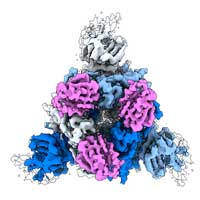 Researchers have designed a molecule that sticks tightly to the coronavirus spike protein, preventing the virus from infecting cells. The molecule might someday be used in an aerosolized drug to treat or prevent COVID-19.
Researchers have designed a molecule that sticks tightly to the coronavirus spike protein, preventing the virus from infecting cells. The molecule might someday be used in an aerosolized drug to treat or prevent COVID-19.
Magnetic whirls crystallize in two dimensions
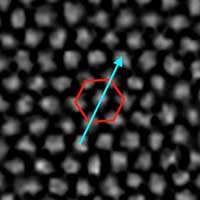 Researchers have engineered a system of many small magnetic whirls to form a regularly ordered state. Such a transition from a disordered to an ordered phase is analogous to the well-known crystallization, which, however, occurs here in two dimensions.
Researchers have engineered a system of many small magnetic whirls to form a regularly ordered state. Such a transition from a disordered to an ordered phase is analogous to the well-known crystallization, which, however, occurs here in two dimensions.
Detecting the handedness of a single nanoparticle
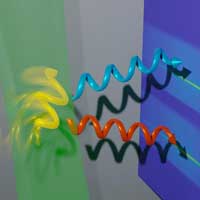 Scientists have developed a new spectroscopic-microscope, which can be used to observe a single nanoparticle in real time. This enabled the first detection of a nanoparticle's handedness while it is freely moving in solution.
Scientists have developed a new spectroscopic-microscope, which can be used to observe a single nanoparticle in real time. This enabled the first detection of a nanoparticle's handedness while it is freely moving in solution.
Subscribe to:
Comments (Atom)
